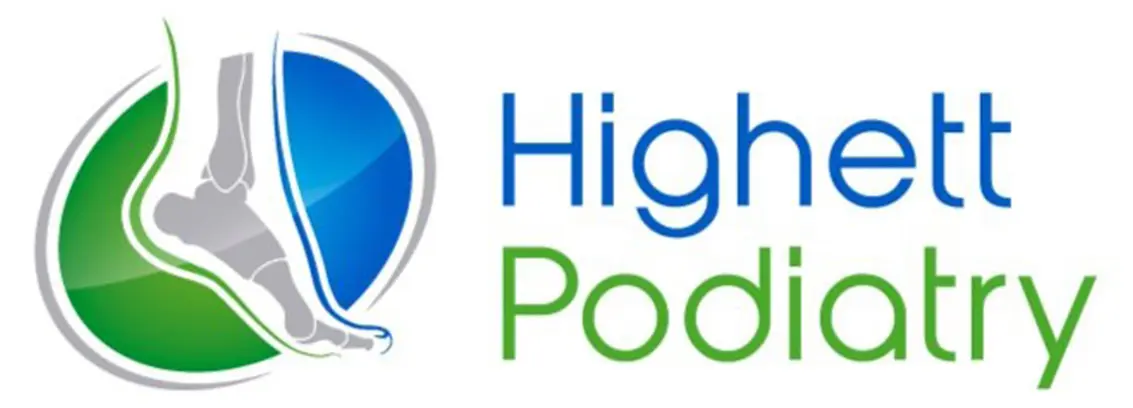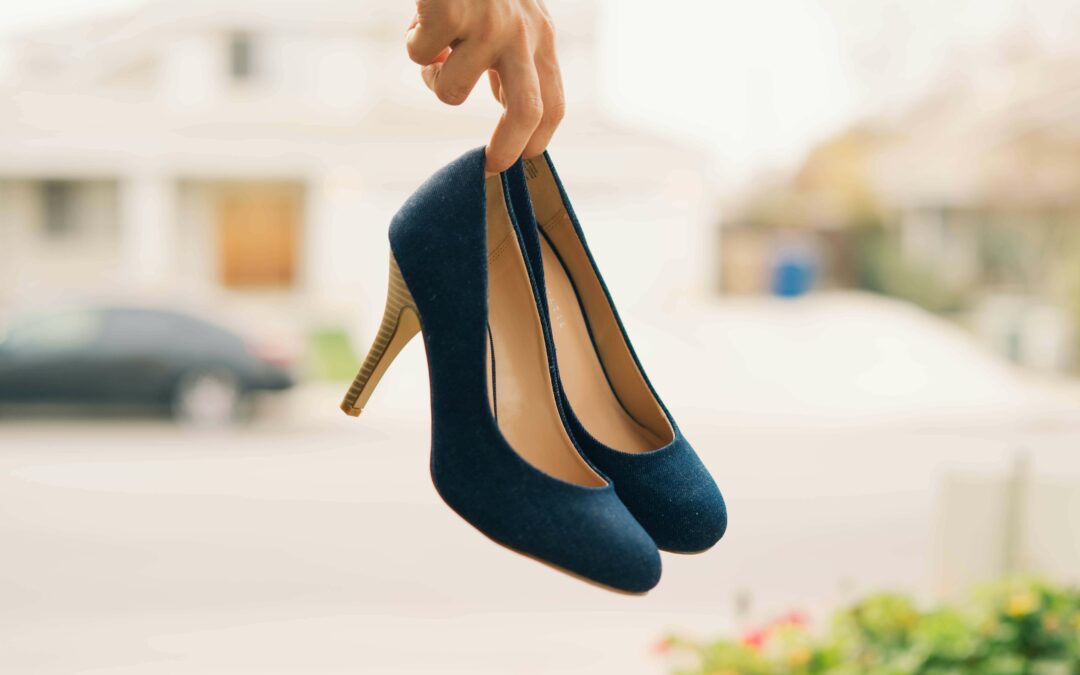High heels can be stylish, but they are not the most foot-friendly footwear choice, especially when worn regularly or for extended periods.
Here are the reasons why high heels can be harmful to your feet and posture:
- Increased Risk of Foot Pain: High heels force your feet into an unnatural position, with most of your body weight shifting onto your feet’ balls. This can lead to pain in the forefoot, especially the metatarsal region and the arches.
- Risk of Ankle Injuries: High heels’ elevated and unstable nature makes you more susceptible to ankle sprains and other injuries, particularly if your misstep or lose your balance.
- Alteration of Natural Gait: High heels alter your normal walking pattern, causing shorter strides and reducing your ability to maintain a proper heel-to-toe gait. This can lead to muscle imbalances and gait abnormalities over time.
- Increased Pressure on Joints: The position of high heels places extra stress on the knees, hips, and lower back. Over time, this can contribute to joint pain and musculoskeletal issues.
- Toe Deformities: Wearing high heels can lead to toe deformities such as hammertoes, where the toes become bent at the middle joint, and bunions, which are painful bony bumps that form at the base of the big toe.
- Calf Tightness: High heels can shorten the calf muscles and Achilles tendon, leading to muscle tightness and discomfort.
- Increased Risk of Falls: Elevated heel height and altered balance can increase the risk of tripping and falling, resulting in various injuries, including fractures and sprains.
- Long-Term Structural Changes: Prolonged wearing of high heels can lead to structural changes in the feet and lower limbs, such as reduced flexibility in the Achilles tendon, calf muscles, and shortened calf muscles.
- Back Pain: High heels can contribute to back pain, as the altered posture and increased curvature of the spine can strain the lower back.
- Achilles Tendon Shortening: The constant elevation of the heel in high heels can lead to the shortening and tightening of the Achilles tendon, potentially causing pain and limiting flexibility.
- Impact on Posture and Balance: Wearing high heels can lead to poor posture, with a forward-leaning position that can affect the alignment of the spine and cause chronic postural problems.
- Skin and Nail Issues: High heels can cause friction, leading to corns, blisters, and ingrown toenails. The lack of space and constant pressure can also contribute to fungal infections.
- Circulation Problems: Tight-fitting shoes, common in many high heels, can impede blood circulation, leading to issues such as swelling, numbness, and an increased risk of varicose veins.
- Impact on Overall Foot Health: Over time, the cumulative effects of wearing high heels can contribute to various foot health issues, including plantar fasciitis, stress fractures, and chronic foot discomfort.
It’s important to note that occasional wear of high heels for special occasions or events is unlikely to cause long-term damage. However, wearing high heels regularly, especially if they are too high or do not provide proper support, can increase the risk of the above-mentioned issues.
To mitigate the potential negative effects of high heels, consider the following tips:
- Choose lower heel heights when possible.
- Opt for shoes with cushioning and arch support.
- Use orthotic inserts for added comfort and support.
- Limit the amount of time you spend wearing high heels.
- Stretch and exercise your calf muscles and Achilles tendon regularly.
- Wear flats or shoes with a wider toe box when you don’t need to wear high heels.
If you have concerns about the impact of high heels on your foot health or are experiencing foot pain or discomfort, consult a podiatrist or orthopaedic specialist for guidance and appropriate treatment. They can provide recommendations tailored to your specific needs and foot condition.
Can regular use of high heels potentially cause long-term damage to the Achilles tendon?
Yes, regular use of high heels can potentially cause long-term damage to the Achilles tendon. The elevation of the heel in high-heeled shoes can lead to a shortened and tightened Achilles tendon over time. This may result in conditions such as Achilles tendonitis, reduced flexibility, and an increased risk of injury.
Do high heels affect balance and stability?
Yes, the altered posture caused by high heels can affect balance and stability, increasing the risk of falls and injuries.
Can wearing high heels occasionally be considered safe for foot health?
Occasional wearing of high heels, especially with lower heel heights and proper shoe fit, is generally considered safe for foot health for many individuals. However, it’s crucial to limit prolonged use, vary footwear choices, and be attentive to any discomfort, as frequent and extended high heel use can increase the risk of musculoskeletal issues.
How do high heels impact the natural alignment of the spine and posture?
The elevation of the heel in high-heeled shoes tends to force the lower spine into an exaggerated curvature, known as hyperlordosis. This increased curvature, particularly in the lumbar region, can lead to lower back pain and discomfort.
Does wearing high heels always result in an altered gait and walking pattern?
Wearing high heels consistently results in a modified gait and walking pattern characterized by a shorter stride length, forward-leaning posture, and altered foot motion. The concentration of body weight on the forefoot increases pressure, potentially leading to discomfort and musculoskeletal issues over time.
Are there alternatives to high heels that are better for foot health?
Alternatives such as flats, sneakers, or shoes with lower and wider heels can be better for foot health as they provide better support and reduce the risk of foot-related issues.
How can I alleviate foot pain caused by wearing high heels?
Opt for lower heel heights to reduce strain on the feet, and choose shoes with wide toe boxes for added comfort. Insert cushioning or insoles designed for high heels to provide extra support and absorb shock. Regularly stretch and massage your feet, especially after wearing heels, to relieve tension and improve circulation. Alternate between high heels and more comfortable shoes to give your feet a break.
It’s important to note that while high heels can be fashionable and worn for special occasions, moderation and consideration for foot health are key to minimising potential negative effects. If you have specific concerns or experience persistent discomfort, it’s advisable to consult with your Podiatrist.

